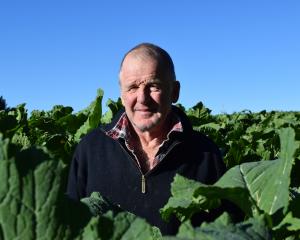
"Nothing has changed," says NZAB Southland regional head Mike McKenzie, speaking at the Federated Farmers Southland Tips For Tough Times event in his hometown of Invercargill last week.
Now was a good time to reflect on how you would have invested money differently when this tough economic cycle had passed, he said.
"Never waste a crisis."
Farmers could talk to their banks and ask to borrow back some of the money paid over the years. "We don’t like to talk like that but it is a tool in the toolkit to manage cycles."
In a tough economic cycle, farmers could feel like they had lost control of their businesses.
Farmers had limited or no control over external forces at play including softening commodity prices, record high inflation and a doubling of interest rates.
"It’s the perfect storm out there."
An internal force at play a farmer could control was their own health to ensure they were fit for the fight.
"Make sure you are investing your energy in the right areas."
In tough times, farmers should focus on return on investment rather than cutting costs.
"You don’t want to make short-term decisions that have long-term implications."
Every dollar should be treated like a prisoner, he said.
Businesses that bounced back from a down cycle the fastest were those which had continued to farm to their strengths.
Farmers needed to know the current reality of their business and know their numbers by obtaining quality information to make decisions from.

"I challenge every farmer to ask their banks how they see your business."
Farmers should understand what their bank wanted from them so they had an "aligned vision" of the business.
"So they are on the same page and there is no surprises behind closed doors."
Once a farmer had that clarity, they could operate with confidence, he said.
Understanding a business could reveal tools in your toolkit, such as liquidating some assets to recalibrate and move forward or finding different revenue streams to spread risk.
Staff should be challenged and given responsibilities.
"Give them opportunities to grow."
Sheep and beef farmers often told him they wanted to apply fertiliser in spring to maximise growth but they applied it in autumn, when they had money.
A funding structure should be available to promote a farm business in the best way, he said.
Farmers needed to have a strategy to plan for today and the future.
A plan should have "restructure options or a plan B" in it including when to execute it if the initial plan did not work.
It was important to maintain relationships with key stakeholders, such as banks, accountants, solicitors, human resource consultants and fertiliser representatives.
"Surround yourself with good people and seek their expertise. These people will take some hats off you and allow you to get out there and do what you do best and enjoy the most."















